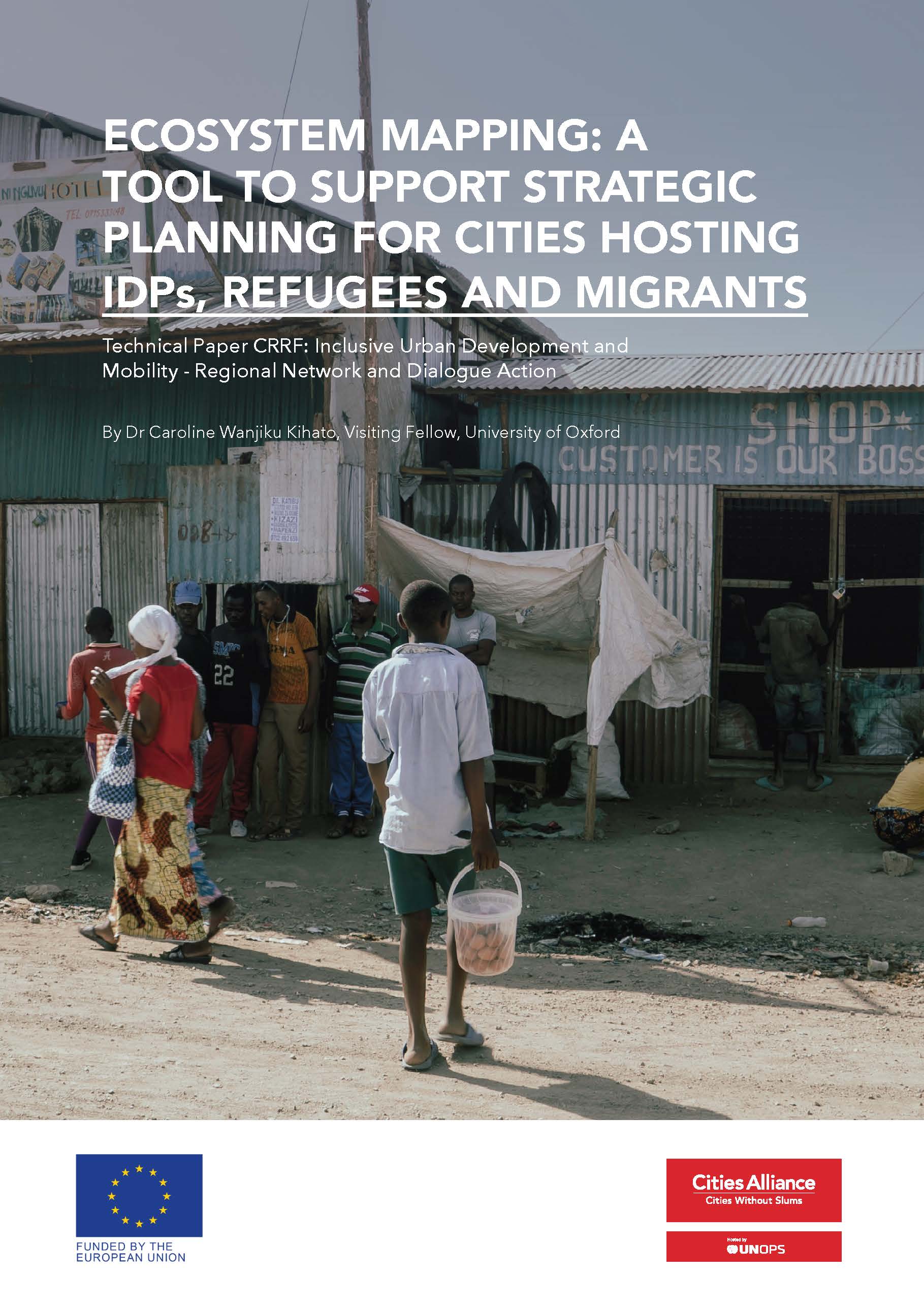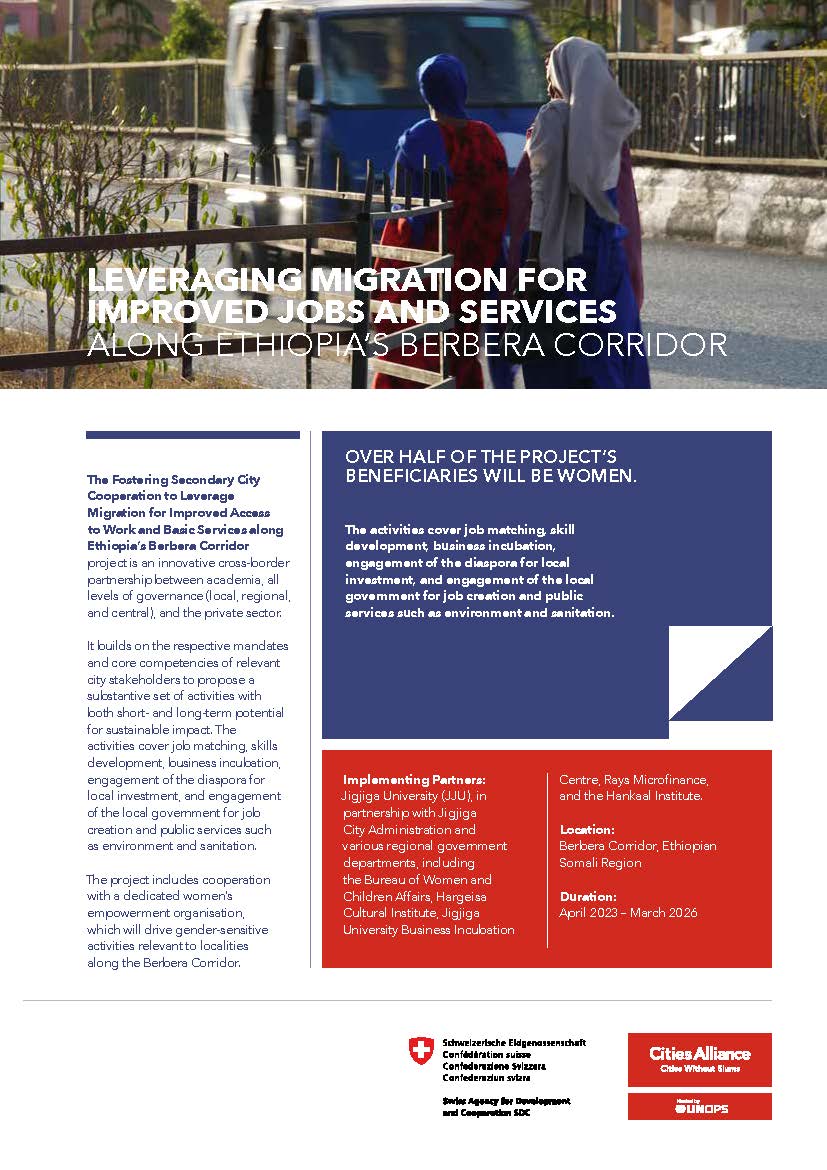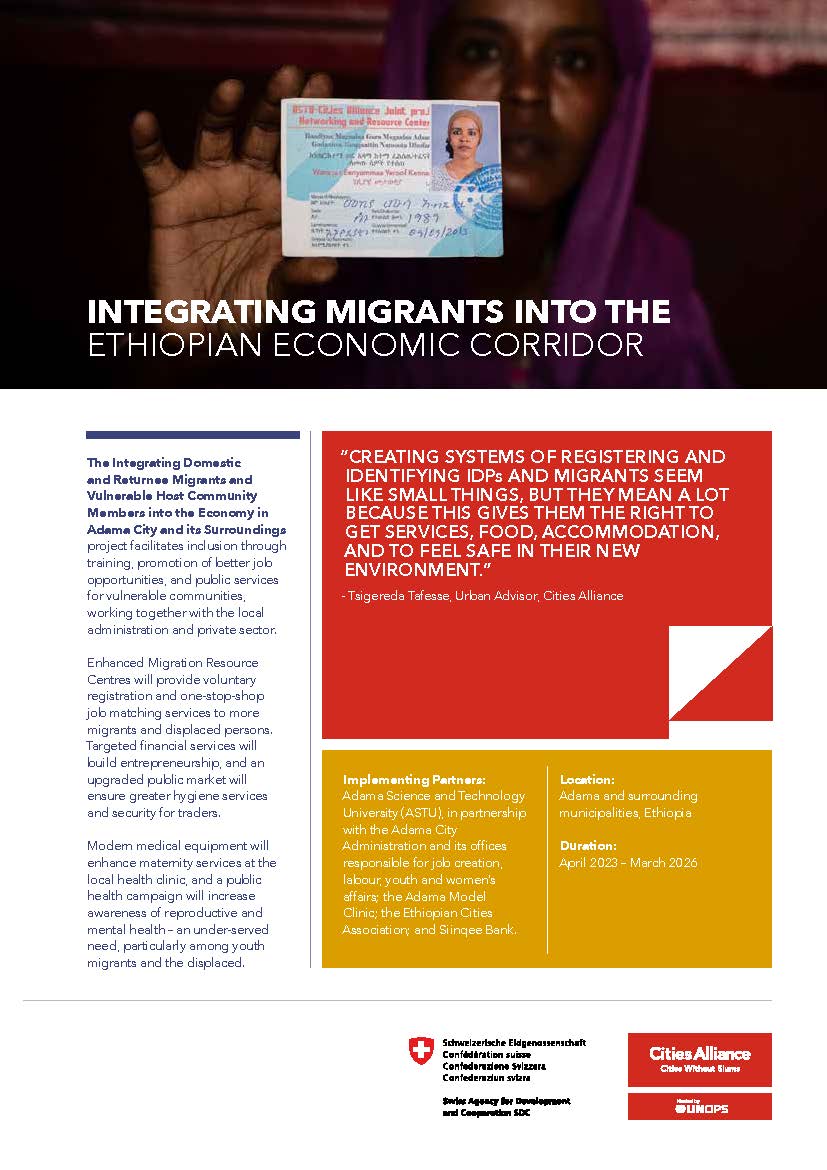- Who We Are
- How We Work
- Regional / Country Initiatives
- Legacy
- Core Themes
- Working Groups
- Portfolio & Results
- Newsroom
- Resources
Ecosystem Mapping: A Tool to Support Strategic Planning for Cities Hosting IDPs, Refugees, and Migrants


Organisational ecosystem mapping provides a powerful way of understanding the complex systems that shape the environment, relationships, and futures of secondary cities.
It is a useful analytical tool that allows organisations to think beyond their immediate core business (partners, constituencies, clients, suppliers, funders, etc.). It offers a template for understanding how those outside of an organisation’s immediate purview – such as regulatory bodies, unions, trade associations, and investors – impact its current and future possibilities.
Rather than see the organisations as hierarchical, geographical, or independent of other sectors and political contexts, ecosystem mapping allows us to view actors relationally and identify visible and invisible relationships that impact populations of concern.
This technical paper outlines ecosystem mapping within the context of the CRRF Inclusive Urban Development and Mobility – Regional Network and Dialogue Action. It offers ways of identifying visible and invisible relationships that shape the outcomes of refugees and vulnerable populations in partner cities and provides potential levers for action.
The paper is a companion to the peer-learning workshop on Sustainable Integration — Reflections on Local Interventions and Urban Refugee Policy organised through the CRRF Action implemented by Cities Alliance and financed by the European Union Trust Fund for Africa (EUTF).


